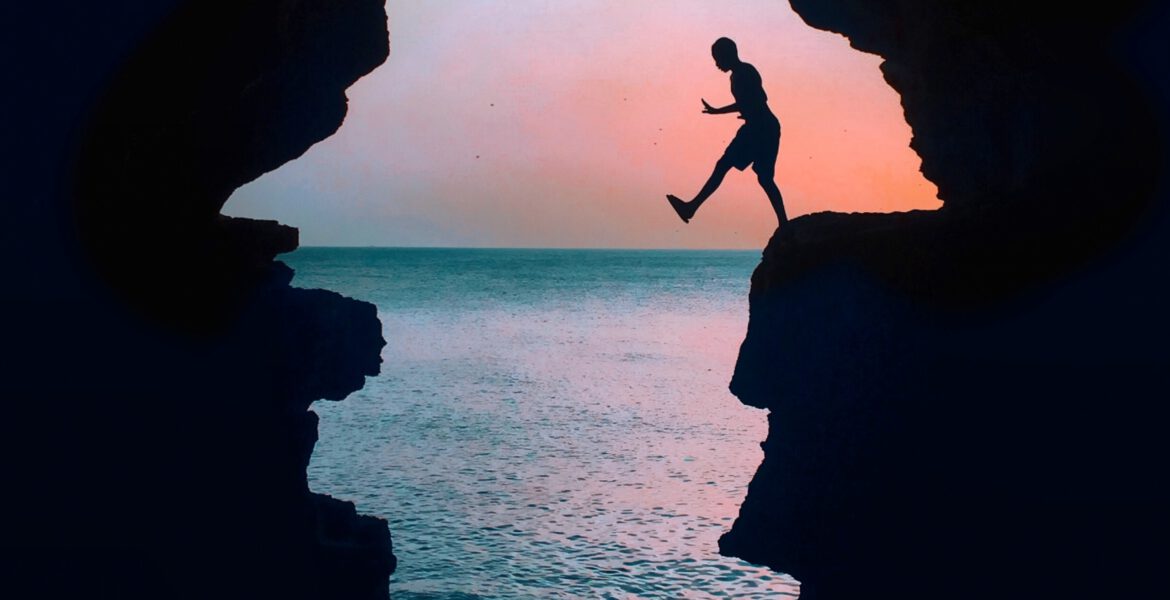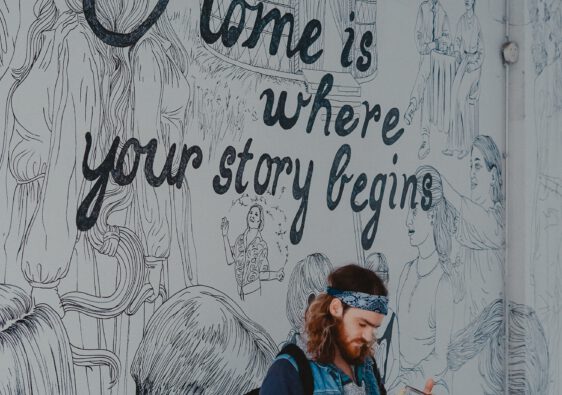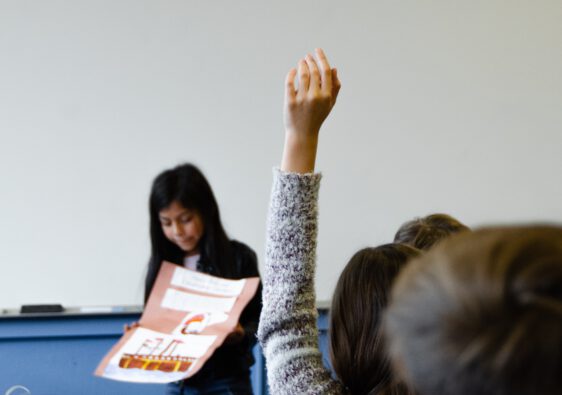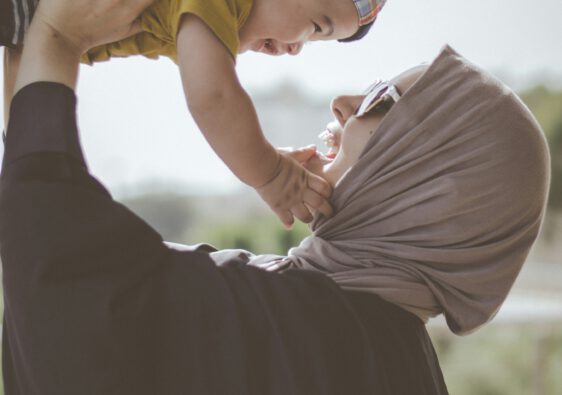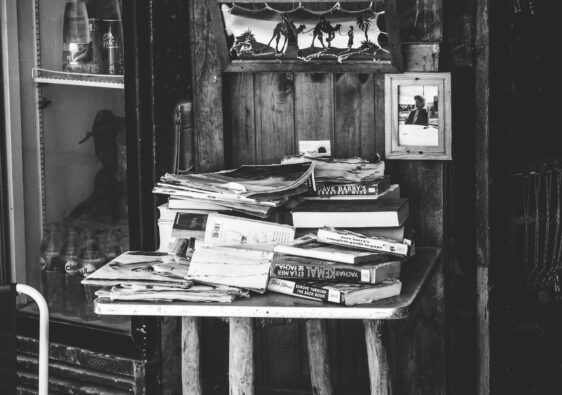The narrative of any culture is its heartbeat, and for Moroccans nurturing our families abroad, this heartbeat must remain strong and steady, despite the geographical distances. We have an obligation—not just to remember our roots but to entwine them with the places we now call home. But it’s not just about looking back; it’s also about empowering our children to position themselves within the Moroccan context and on the global stage.
But why does this matter? Isn’t culture, after all, meant to be fluid, to be shared and exchanged like the goods along the ancient trade routes of our ancestors?
The answer is not simple, nor is it devoid of contention. We’ve seen debates rage over cultural appropriation, witnessed the easy commercialization of what once was sacred, and watched as the lines of cultural ownership blur. It’s all seemingly harmless until these cultural borrowings start rewriting history, altering the social fabric, and, most insidiously, erasing identities.
For Moroccans, our narrative is the lifeblood of our identity. It’s a tale spun from the threads of resilience and pride, from the Atlas Mountains to the Sahara dunes. But beyond the scenic landscapes and the exotic flavors for which our culture is renowned lies a history—a very real, very human story—that risks dilution or misrepresentation in the global narrative.
If the power of narrative was trivial, colonial powers wouldn’t have bothered with the pens of historians and the mouths of storytellers. They understood that to control a people, you begin by seizing their narrative. It’s a lesson history has taught us, often in the harshest of ways, and it’s a lesson we cannot afford to forget as we raise our children.
As the Moroccan diaspora scatters like seeds to the wind, we find ourselves in new environments, each with its own stories and cultural currents.
The challenge for Moroccan parents abroad is profound.
How do we teach our children to appreciate the nuances of our culture in a world that often favors a homogenized version? How do we ensure they understand the value of our narrative, not just for the sake of preservation, but for the continuation of our story?
We begin with conversation. In each Moroccan household, let the stories flourish—of family, of local legends, of national heroes and historic triumphs.
Our narratives are more than just tales; they are the blueprints of our social identity, the framework upon which our community stands. When the cultural landmarks of our story—be it the art of couscous preparation or the intricate designs of our caftans—become absorbed and claimed by others without context or credit, it is not merely a matter of pride but of historical accuracy and respect.
Let’s speak to our children of Ibn Battuta’s travels, of ‘Abd al-Wahid al-Marrakushi’ contributions to history, of the wealth of trade going through Sijilmasa, and of the ancient libraries of Fez, so that they may know the breadth and depth of our intellectual legacy.
Then, we embrace engagement. Let’s encourage our children to share these stories, to invite dialogue, and to practice the traditions that have colored our history. It is not enough to passively hold on to our culture; we must actively participate in its expression.
We must help our children appropriate Moroccan culture in a way that feels authentic. They should be able to own their heritage, understanding the values, practices, and history that come with it. It’s essential for them to recognize the lineage of their ancestors and see the reflection of their own potential within our rich history.
However, our narrative stretches beyond the Moroccan context. We must also guide our children in understanding how to situate themselves within a global framework. It’s about fostering a duality that allows them to honor their heritage while engaging with the wider world.
On a continental and regional level, they can find common ground with others, finding ways to relate their unique Moroccan perspective to the shared experiences of Africa and the Arab world. This balance is crucial as they grow within their host countries, which they view not as temporary shelters but as their very homes. Here, they must learn how to wield the dual power of their identities.
As the world becomes increasingly interconnected, the Moroccan story must not be lost in translation. For every child we raise on foreign soil, let us plant a seed of our narrative, so it may grow into a strong tree, deeply rooted in the heritage of our past, and branching out into the multicultural landscape of their future. As Moroccan ambassadors, they carry with them the richness of our culture, the knowledge, and the stories.
These are assets they should wield with pride, using them to enrich the multicultural mosaic of their adopted countries.
Our children have the unique opportunity to serve as bridges between cultures, showing that identity can be fluid and encompassing. By encouraging them to contribute to their communities, they can influence positive change, shaping the societies they live in while also contributing to the global Moroccan narrative.
The global impact of Moroccans can be profound. Our culture is known for its hospitality, its artistic beauty, and its intricate complexities—attributes that can enrich any society. When our children bring these elements into their interactions, they’re not just preserving our heritage; they’re actively demonstrating its value in a larger context.
But the responsibility doesn’t just fall on the young; it’s a collective effort. We, as parents and community members, must provide the platforms for our children to learn, celebrate, and share our Moroccan culture. We must create spaces where the Moroccan identity can be explored and understood in depth, where the stories of our past are linked with the present, paving a path into the future.
In the end, it’s about creating a legacy that goes beyond ourselves—a dynamic Moroccan presence that contributes to the world while never forgetting where it began. As we teach our children to navigate their dual identities, we’re shaping the ambassadors of tomorrow, those who will carry the Moroccan spirit forward, enriching not just themselves but the communities in which they thrive.


